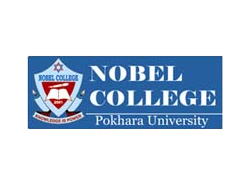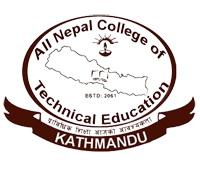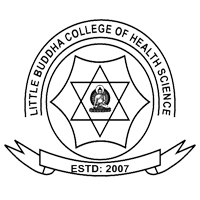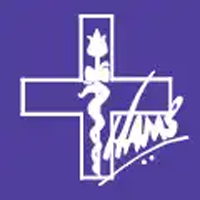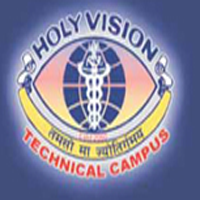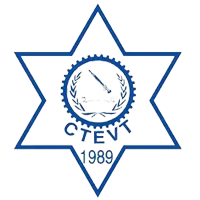Overview
The Nepali Army College of Health Sciences (NACHS), located in Bhandarkhal, Sanobharyang, Kathmandu, was established in 2074 B.S. (2017 A.D.) with a clear mission: to prepare dedicated health professionals who are capable, responsible, and ready to contribute to Nepal’s healthcare system. Founded as a non-profit institution under the stewardship of the Nepali Army Welfare Fund, NACHS has evolved into a trusted academic space where learning, discipline, and service converge.
Initially introduced as the Nepalese Army Institute of Health Sciences - College of Medical Polytechnic (NAIHS-COMP), the institution was later renamed to reflect its broader purpose better.
This name change symbolizes more than a rebranding; it captures the vision of building a foundation for the future of healthcare education in Nepal.
The college operates under the Nepali Army Welfare Planning Directorate. It follows a student-first approach, making sure that both dependents of army personnel and civilians have access to quality education in health sciences.
Quick Highlights
-
Location: Bhandarkhal, Sanobharyang, Kathmandu
-
Established: 2074 B.S. (2017 A.D.)
-
Affiliation: Council for Technical Education and Vocational Training (CTEVT)
-
Ownership and Operation: Nepali Army Welfare Fund
-
Teaching Hospital: Tri-Chandra Military Hospital (TCMH)
-
Type: Non-profit academic institution
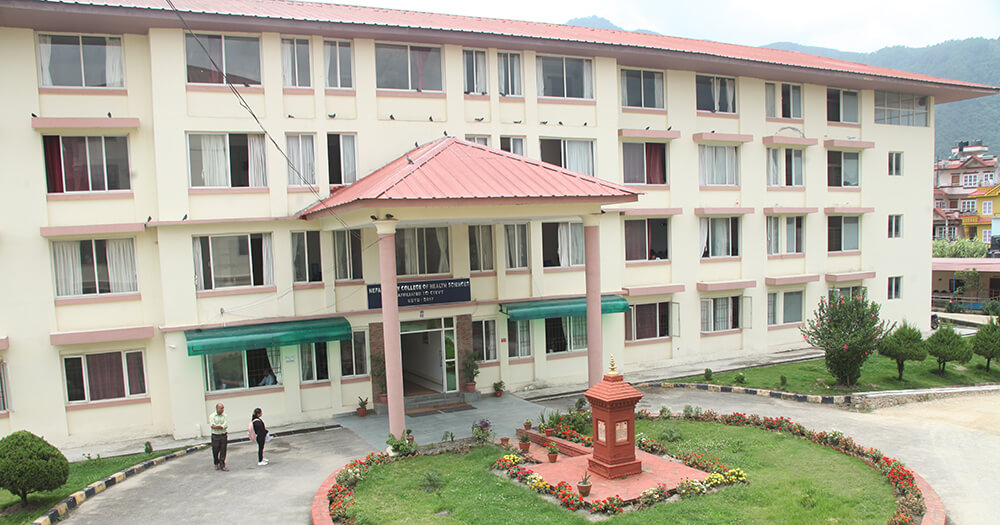
Academic Programs Offered
At NACHS, the academic programs are thoughtfully structured to ensure students acquire not just theoretical knowledge but also practical, real-world skills. All programs are affiliated with CTEVT, providing national recognition and academic consistency.
The college currently offers:
-
Certificate in General Medicine (Health Assistant)
-
Certificate in Nursing
-
Diploma in Pharmacy
-
Certificate in Medical Laboratory Technology (CMLT)
-
Certificate in Diagnostic Radiography
-
Certificate in Physiotherapy
Each program is three years in duration and integrates clinical exposure, community engagement, and classroom-based learning. Students are expected to apply their classroom learning during hospital rotations and community visits, gaining valuable insights and skills.
Admission Process
The admission process at NACHS follows a transparent and merit-based approach. Applicants must sit for the entrance examination conducted by CTEVT, and seats are allocated based on the merit list. Half of the available seats are reserved for children of Nepali Army personnel, including both serving and retired members. The remaining seats are open to civilian students.
Here is the program-wise seat allocation:
-
Certificate in General Medicine: 40 seats (20 Army, 20 Civilians)
-
Diploma in Pharmacy: 40 seats (20 Army, 20 Civilians)
-
Certificate in Nursing: 40 seats (21 Army, 19 Civilians)
-
Certificate in Diagnostic Radiography: 30 seats (15 Army, 15 Civilians)
-
Certificate in Physiotherapy: 30 seats (15 Army, 15 Civilians)
-
Certificate in Medical Laboratory Technology: 30 seats (15 Army, 15 Civilians)
Details about application deadlines, eligibility criteria, and required documents are made available through official college notices and administrative support.
Teaching Faculty and Learning Methodology
The strength of any academic institution lies in its educators. NACHS is proud to have a team of dedicated faculty members, many of whom hold advanced degrees and extensive experience in their respective fields.
Several faculty members have studied or trained abroad, bringing international perspectives into the classroom.
The college follows a multi-dimensional teaching approach that includes:
-
Classroom lectures with interactive discussions
-
Practical training in modern laboratories
-
Hospital postings and bedside teaching sessions
-
Small-group discussions and presentations
-
Case-based learning and demonstrations
-
Community health field visits
This blend of academic and applied learning ensures that students gain a well-rounded understanding of health sciences.
Infrastructure and Learning Facilities
NACHS is built to support both academic and extracurricular development. The campus includes:
-
18 Classrooms: Each can accommodate 40 students and includes individual desks and modern audio-visual teaching aids.
-
20 Laboratories: Equipped for both basic and applied sciences, helping students practice what they learn.
-
Library: Over 4,000 titles, journals, reports, and digital resources. The library offers a quiet and spacious environment, Wi-Fi access, and printing/photocopy services.
-
Auditorium: A large hall with 600-seat capacity used for lectures, events, seminars, and conferences.
-
Power and Water Supply: Reliable three-phase electricity with generator backup and a safe drinking water system.
The college environment is quiet, clean, and situated in a naturally scenic area, offering a peaceful atmosphere conducive to study and reflection. It’s only about 500 meters from the Ring Road, making it easily accessible.
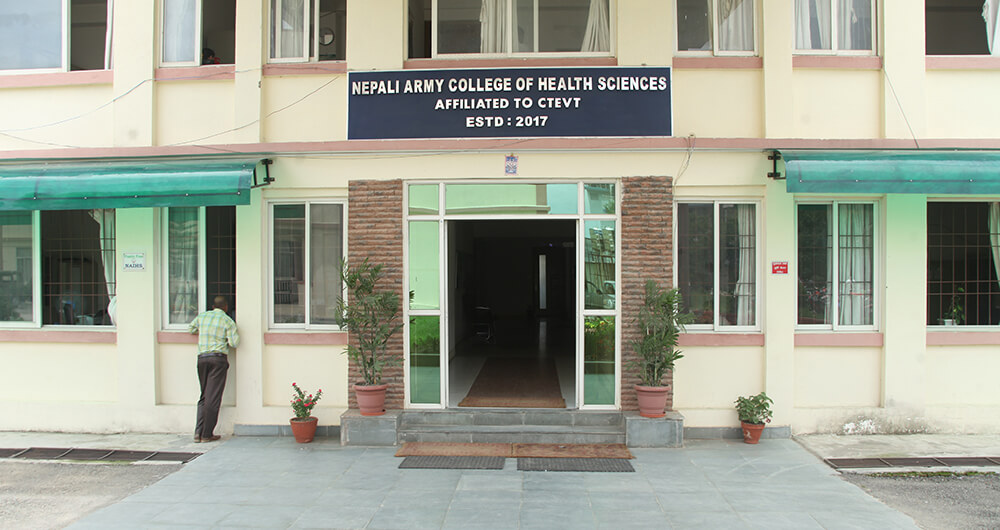
Student Life and Campus Experience
Life at NACHS is disciplined but student-centered. Uniform codes are strictly followed, and students are expected to demonstrate respectful behavior on campus, during hospital rotations, and in community settings. The college maintains clear rules to guide students towards professional behavior and high ethical standards.
Students are also encouraged to participate in group learning, practical case discussions, and fieldwork, which foster teamwork and confidence.
Extracurricular Activities (ECA)
Physical and mental well-being are essential for students in the healthcare field. NACHS organizes a variety of extracurricular activities such as:
-
Sports and physical fitness programs
-
Yoga and meditation sessions
-
Cultural and social events
These activities help students develop balance and resilience, preparing them for future careers in high-pressure healthcare environments.
Scholarships and Financial Support
NACHS provides financial support to eligible students through scholarships and fee waivers. Scholarships are available under two major categories:
-
CTEVT Scholarships: Offered as per national policy and managed through CTEVT procedures.
-
Nepali Army Welfare Fund Scholarships: Allocated to children of serving, retired, or fallen army personnel.
Scholarship amounts vary depending on the category and cover partial tuition expenses. The administrative office clearly outlines all policies to maintain transparency.
Achievements and Institutional Milestones
Since its founding, NACHS has achieved several key milestones:
-
Successfully operating Tri-Chandra Military Hospital as a teaching hospital
-
Graduation of numerous skilled professionals in paramedical and nursing fields
-
Community-based field practices in line with government health goals
-
Implementation of a strong academic code of conduct
-
Continual development of infrastructure and learning spaces
These achievements demonstrate the college’s commitment to upholding academic integrity, delivering quality service, and fostering community engagement.
Why Choose NACHS?
For students considering a future in health sciences, NACHS offers a grounded, reliable, and meaningful academic environment. Here are some practical reasons why many choose this institution:
-
CTEVT and relevant government authorities recognize programs.
-
Students gain hands-on experience at Tri-Chandra Military Hospital.
-
The academic schedule and teaching style promote practical skills alongside theory.
-
Financial support is available through institutional and national schemes.
-
The campus is both accessible and peaceful, fostering focused learning.
The college is ideal for students seeking structured, affordable, and credible health education in Nepal.
Health and Transportation Services
Students at NACHS receive essential health services from Tri-Chandra Military Hospital. For minor issues, a medical room is located within the college building. Emergency care is always accessible.
The college also provides transportation for clinical postings, field visits, and community programs. These services are scheduled according to academic requirements, helping students manage their time and travel safely.
Curriculum and Learning Structure
The academic curriculum follows the guidelines set by CTEVT. Each program is spread across three years:
-
First Year: Focus on foundational and basic science subjects.
-
Second Year: Theoretical and practical sessions covering core subjects.
-
Third Year: Clinical practice in hospitals and applied field settings.
The learning process includes:
-
Didactic teaching
-
Clinical demonstrations
-
Laboratory practice
-
Group projects and case reports
-
Community-based health practice in rural and urban areas
This multi-level approach ensures that students are prepared to meet real-life challenges in health service delivery.
Rules and Code of Conduct
The college maintains strict discipline to ensure a professional atmosphere. Key rules include:
-
Mandatory uniform on campus and during fieldwork
-
Respectful behavior at all times
-
No tolerance for harassment, drug use, bullying, or misconduct
-
Sanctions for violations include warnings, suspension, or expulsion depending on the issue
These standards help preserve the dignity of students and ensure a safe learning environment.
Teaching Hospital: Tri-Chandra Military Hospital (TCMH)
Tri-Chandra Military Hospital, founded in 1982 B.S. (1925 A.D.), plays a critical role in the training of NACHS students. It serves as a full-functioning hospital providing services to Nepali Army personnel and their families.
Students participate in clinical rotations, assist with patient care, and gain practical experience under the supervision of experienced professionals. This hands-on learning environment bridges the gap between classroom theory and real-world healthcare application.
Fees and Payment Policy
Students are required to pay:
-
Admission fees
-
Tuition and internal exam fees (payable to NACHS)
-
Other charges such as CTEVT registration and community practice (covered by the college)
All fees paid to NACHS are non-refundable, and students are expected to adhere to the financial policies outlined by the accounts section.
Conclusion
The Nepali Army College of Health Sciences stands out as an institution grounded in purpose, quality, and responsibility. Through its structured health programs, well-qualified faculty, and support from the Nepali Army, NACHS is playing a pivotal role in strengthening Nepal's healthcare education.


